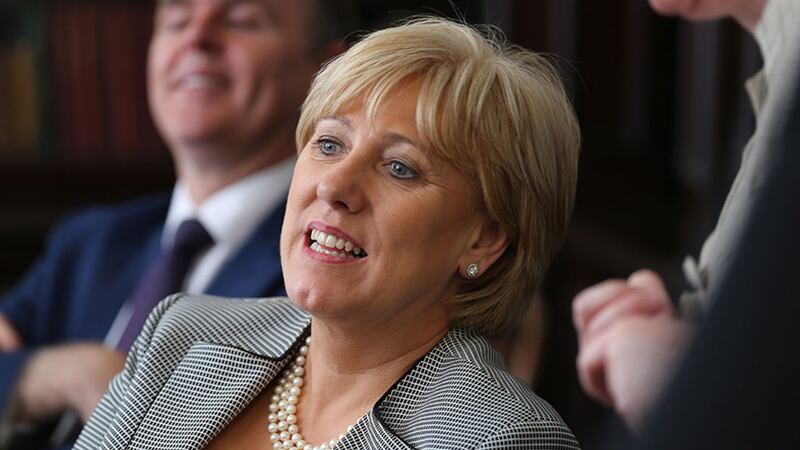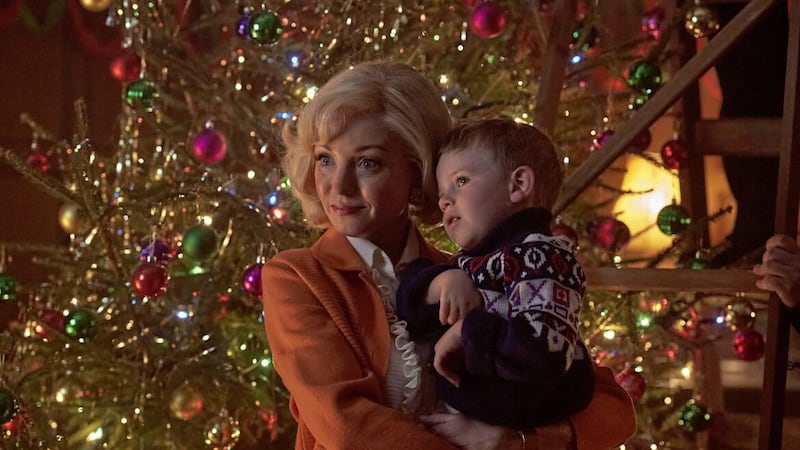It is not viable for some staff at the Republic's national broadcaster to be paid more than the Irish and British premiers, Dublin's business minister has said.
RTÉ confirmed it is seeking to cut its workforce by 200 as one of a series of measures to tackle its financial crisis and reduce costs by €60 million over the next three years.
The plan was leaked to a newspaper last night and was meant to be presented by management later this week - following the death of RTÉ stalwart Gay Byrne, whose funeral takes place on Friday.
The plan, sent to staff at 10.30pm on Wednesday, said RTÉ will reduce fees paid to contracted on-air presenters by 15%.
It said it would consult staff and unions on a number of initiatives, including a pay freeze and tiered pay reductions for existing staff.
RTÉ director general Dee Forbes receives a salary of €250,000, a €25,000 car allowance and pension contributions of €63,000 - bringing her total package to €338,000.
Salaries for the 10 highest paid RTE presenters, who mainly work as contractors rather than staff, added up to €3 million in 2016.
Taosieach Leo Varadkar is paid €200,000 per year.
Speaking to RTÉ radio on Thursday morning, Business Minister Heather Humphreys said her sympathies are with those who may lose their jobs in RTÉ, but the business model needs to be addressed if it is to be sustainable.
"At the moment there are workers in RTÉ who are paid more than the taoiseach, UK prime minister and the president of America. That would not appear to be sustainable into the future so RTÉ need to be like any business and cut their cloth to suit their measure," she said.
"RTÉ have to look at their business model and how they operate and how they transform to meet the digital environment.
"If businesses came every time they ran into trouble, looking to be bailed out by the taxpayer, then that would not be a satisfactory solution."
Ms Humphreys said the government has been looking at reforming the TV licence fee collection system, a critical stream of funding for RTÉ, which has a 14% evasion rate.
"RTÉ deserves to be funded as it is a public service but they need to look at their business model," she said.
Speaking at a Future Jobs conference on the future of work, Ms Humphreys reiterated that high salaries for some RTÉ staff are not viable at a time when it is in turmoil.
"RTÉ needs to look at the future as we are doing here today. We are asking businesses how are they going to manage with technology and they way we are going to have to live and work in the future.
"RTÉ has a system where they want to attract various presenters and they have to decide themselves if that model is viable into the future. RTÉ need to ask themselves if that model is viable - I don't personally think it is viable and it is something they will have to look at.
"I am saying to businesses every day of the week, you have to look at your costs, your bottom line and your competitiveness and your productivity, so there is a whole range of issues they need to look at."
Announcing the measures last night, Ms Forbes said: "The challenges in front of us are real. But RTÉ does have a plan, which we are confident can address many of the challenges we face and bring Ireland's national public broadcaster to stability.
"I am clear about what role RTÉ should play in Irish life, but I am also clear that we cannot do it unless government fixes the TV licence system.
"We shouldn't be under any illusions: we are in a fight - a fight to sustain a viable public media in Ireland."
The chairwoman of the RTÉ board, Moya Doherty, said: "At the outset I wish to express my deep unhappiness at the leak of details of RTÉ's imminent change process, at a most sensitive time for the organisation.
"I would also like to point out, in the clearest possible terms, that the board of RTÉ fully supports the executive of RTÉ as it sets out to implement what will be a challenging but necessary process of transformation."
RTÉ unions are meeting management at the station to discuss the proposed job cuts and changes.
The National Union of Journalists said on Wednesday night: "At a meeting last week, NUJ journalists strongly criticised the way RTÉ management's financial plans were being drip-fed to newspapers before staff could be consulted.
"Again tonight, we were dismayed to read in the print media details of RTÉ proposals that refer directly to our livelihoods, our futures and the security of our jobs.
"There has been no consultation. NUJ members will robustly defend both public service broadcasting in this country and also our rights to fair treatment as workers."
There are 1,822 staff in RTÉ, 250 of whom are part-time.
The most recent accounts show that staff costs amounted to €148.5 million, with a further 34.9 million euro being paid to contractors or high-ranking presenters.








